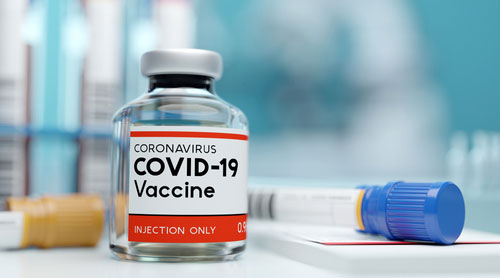India’s drug regulatory agency threatens to erode the credibility of the country’s vaccine evaluation processes through its opacity on serious adverse events in at least two volunteers in India who received candidate vaccines against the coronavirus disease, medical experts said.
The Central Drugs Standard Control Organisation (CDSCO) has released no information about probes into a flu-like illness in August in a volunteer in Nagpur who received a home-grown candidate made by Bharat Biotech, and a neurological illness in October in a volunteer in Chennai who received the AstraZeneca-Oxford candidate.
Doctors discharged both volunteers after treatment in hospitals, and the vaccine companies conducting the clinical trials have asserted that the adverse events the two volunteers experienced were probed and found unrelated to the candidate vaccines.
Experts have underlined that clinical trial protocols are typically designed to record and investigate every adverse event that occurs — minor to severe — in trial volunteers, and that all adverse events may not be triggered by the candidate vaccines under evaluation.
Researchers involved in the trials have told The Telegraph that in both instances, the trial teams informed the local institutional ethics committees and the CDSCO of the adverse events, as required, within 48 hours after the volunteers reported the events.
But experts say the lack of official statements on either of the probes from the CDSCO — the country’s apex regulatory agency for drugs and vaccines — points to a troubling opacity that has dogged several of its decisions on Covid-19.
“It is possible the investigating panel did not see any need for even an interim trial halt,” said Satyajit Rath, a senior medical immunologist and visiting professor at the Indian Institute of Science Education and Research, Pune.
“But when this is not said authoritatively, with laid-out reasoning, by the regulatory authorities, it contributes to an erosion of trust.”
The volunteer who developed a neurological illness after receiving the AstraZeneca candidate vaccine has sent a legal notice to the CDSCO, AstraZeneca, Oxford University and the Pune-based Serum Institute of India which conducted the trial, seeking Rs 5 crore in compensation.
The Serum Institute released a statement on Sunday evening accusing the volunteer of “spreading malicious information” with “pecuniary motive” and threatening to seek Rs 100 crore in damages from the volunteer.
“The allegations in the (legal) notice are malicious and misconceived,” Serum said.
“While the Serum Institute is sympathetic with the volunteer’s medical condition, there is absolutely no correlation with the vaccine trial and the medical condition of the volunteer. The volunteer is falsely laying the blame for his medical problems on the Covid vaccine trial.
“The claim is malicious because the volunteer was specifically informed by the medical team that the complications he suffered were independent of the vaccine trial he underwent…. He still chose to go public and malign the reputation of the company.”
The notice sent by a Chennai-based law firm on behalf of the volunteer claims there has been an attempt “to conceal the entire episode of the adverse reaction suffered by (the volunteer) as a non-event” and go ahead with the clinical trial.
Public health researchers say the institutional ethics panel and the CDSCO would have likely initiated their probe into the event by mid-October as the volunteer experienced the adverse event on October 11, ten days after receiving a shot.
The lack of a halt in the trial suggests a probe was completed and the CDSCO chose not to make the findings public. “This opacity is based on presumptions that ‘authority knows best’ and is part of the pervasive attitude of both State and non-State authorities in India,” Rath said.
Experts have also underlined that throughout the Centre’s response to the pandemic, the CDSCO has done little to explain the rationale behind any of its regulatory decisions involving the drugs approved for use to treat Covid-19 patients.
“We need far greater transparency from this agency,” said Anant Bhan, a bioethics researcher and visiting professor of community medicine at the Yenepoya Medical College, Mangalore.
“Not saying anything about a probe on a serious adverse event does not help.”
Bhan said the CDSCO had released its decisions on various drugs and candidate vaccines against Covid-19 without any information on the reasoning or the lines of argument in favour of those decisions. “We also don’t know who guided those decisions,” Bhan said.
Doctors with expertise in clinical trials say that while all adverse events need to be recorded and investigated by the data safety monitoring board, they need not be placed in the public domain during the trial.
“There are checks and balances — the data safety monitoring board is independent,” said Urmila Thatte, former head of pharmacology at the King Edward Memorial College, Mumbai. “But after the trial, all the data should be available.”












